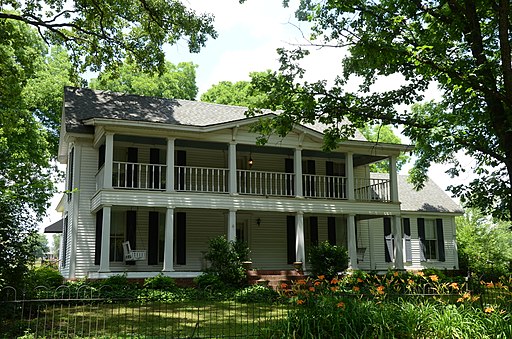Fairfax, Washington D.C., and many other areas throughout Northern Virginia are filled with beautiful historic homes. There are plenty of options for those looking for an older-style home with plenty of character.
While buying a historic property may be something you’ve always dreamed of, it can quickly turn into a nightmare. You want to be prepared for what owning a historic home includes. Here are some of the things you should consider before buying a historic property.
Table of Contents
ToggleA Few Things to Look At Before Buying a Historic Property
Maintenance and Repair Costs
All homes come with some need for maintenance and repairs. However, a newer home may not need the same work done as an older home does.
Historic homes may come with structural deficiencies, which could become costly to update. Making an older home suitable for your modern lifestyle isn’t always easy and it won’t be cheap.
Some renovations historic properties may need can be very costly and should be considered when buying a historic property. In addition, you may have to follow specific guidelines and rules to ensure the authenticity of the property is maintained.
Historic Homes Come with Regulations
If you think after buying a historic property you can do whatever you want with it, think again. Most historic properties are found in designated historic zones. These properties come with stringent zoning rules and building codes.
Before you decide to buy a historic property, make sure you understand what you can and cannot do with it. You may be limited on any additions to the home, exterior changes, landscaping, and other renovations.
Getting Insurance Isn’t Always Easy
Some home insurance companies may not want to sell you a policy due to the higher replacement cost for historic homes. While this isn’t always the case, you may end up paying more for home insurance, in some circumstances.
However, if the home is only federally registered as a historic home, it may be free of certain restrictions. If this is the case, you may not struggle as much to find homeowners insurance.
You’ll become a Part of a Unique Community
While many of the things you should consider before buying a historic property sound negative, owning a historic home has plenty of benefits. As a historic homeowner, you’ll become a part of a unique community of other historic homeowners. Often, they will be your next-door neighbors
A specific group of home buyers tends to be attracted to historic properties. The charm and character associated with these properties and living in a historic district means you’ll be entering into this unique community when you purchase a historic property.
Potential Financial Benefits
With some historic homes, you may gain access to specific financial benefits. Some state and local governments offer tax incentives and lower interest rate loans for those willing to purchase and preserve historic homes.
The Virginia Department of Historic Resources offers programs for historic home buyers and owners. Before you decide to buy a historic home in Virginia, make sure you look into any financial benefits you may be able to gain through these programs.
You May End Up With Visitors
Owning a historic home, depending on the significance of the property, could attract several looky-loos. If the home offers a unique history, strangers may show up to take a selfie and gawk at your home. Some may even knock on your door.
While some homeowners may like the fact that others visit their home and check it out, it can become an invasion of privacy. Of course, not all historic homes offer the significance to attract regular visitors. If you value privacy, make sure you understand the historic significance of the property before buying a historic property.
Higher Energy Costs
It’s important to remember, historic homes were built with old technology. While some of these properties may have updated electrical or plumbing systems, many are still outdated.
Some historic homes were built during a time when codes were not enforced. You could end up with a home with outdated electrical wiring, plumbing, a lack of insulation, or an old HVAC system.
While some of these things can be updated, others may be rather expensive or nearly impossible to change. For some, the higher cost for utilities may not be an issue. Just make sure you understand what you’re getting into before buying a historic property.
Historic homes offer plenty of charm, unique architecture, and many wonderful benefits. However, these properties don’t offer the best choice for the average homebuyer. Before buying a historic property, make sure you understand the responsibility you’re taking on.



